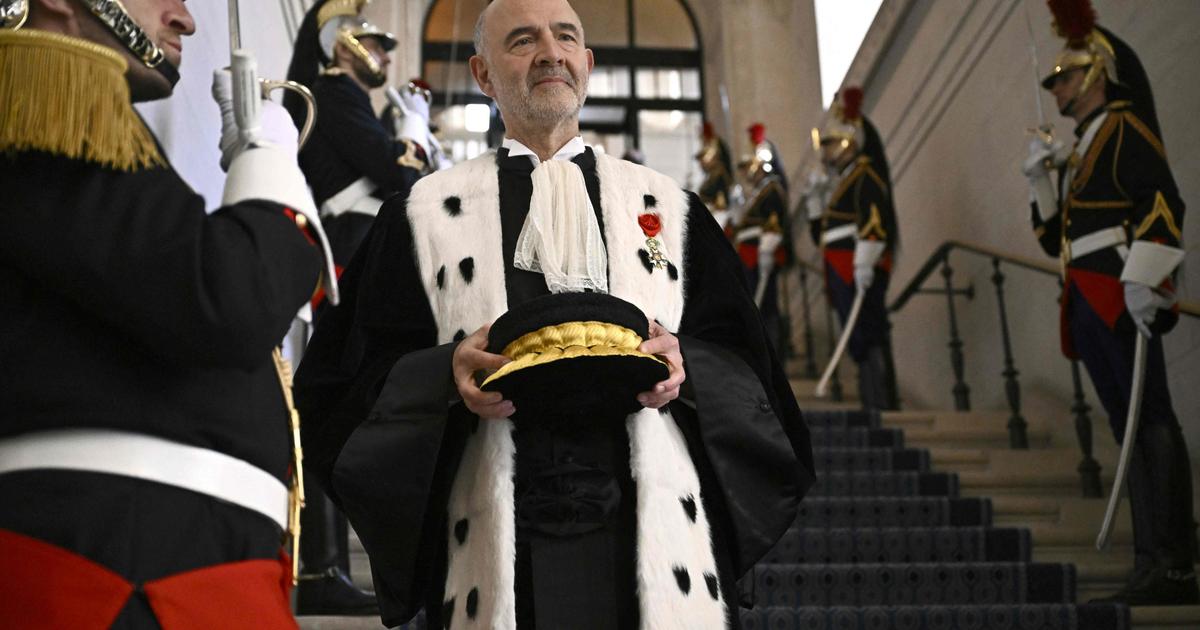Thierry Lentz is a historian and teacher.
He has just published “
On the banks of the Seine… History and secrets of Napoleon’s tomb”
, published by Perrin.
In his intervention during the back-to-school hearing of the Court of Auditors, on January 29, Pierre Moscovici, as he has the right, spoke freely.
But here, the “solemn” nature of the moment apparently gave him wings.
No doubt the first president will have been stung, much more than he can admit, by the barrage of criticism which followed his decision to suspend the publication of the results of the Court's report on immigration, on the pretext that he did not want to interfere in the debates of Parliament.
We know that his questionable decision was discussed and, perhaps, that he was surprised that people dared to challenge his will which he considered incontestable and sovereign.
So, during the solemn return to school, he intended to give a lesson in constitutional law... the analysis of which still smacks of
pro domo
advocacy and implicitly confirms his political intentions.
The Court of Auditors and the Constitutional Council (qualified as the “Supreme Court”, in the American style) are, according to Mr. Moscovici,
“pillars of democracy”
.
His words will have exceeded his thoughts which cannot be incomplete on such a serious subject.
He is indeed aware that the pillars of our democracy are, like the famous and so variable “values of the Republic”, defined by our Constitution and its preamble.
The supreme provisions (this time in the true sense of the term) are clear and clear: universal suffrage is the source of all power;
the sovereign people express themselves through the voice of their representatives and the referendum.
To the Court and the Council, the text grants no superiority of this type, assigning them only broad technical powers and legislative or financial verification, through perfectly written articles, too.
Solemn speeches or not, the temporal collision between the Council's decision and the deliberately delayed publication of the Court's report has a bad effect on public opinion.
Thierry Lentz
We know that, through its jurisprudence, the Constitutional Council has expanded the scope of its control on its own (or thanks to the imprudent reforms of 2008).
He continues this work with enthusiasm and without opposition.
We have also seen that notwithstanding article 47-2 which militated for the opposite solution, the president of the Court of Auditors chose, as an opportunity, to wait until it was too late to
"assist the parliament in the control of government action
.
With regard to the principles of legitimacy and representativeness, contesting these practices would not be “illiberal”, as Mr. Moscovici likes to say, unless we decree the non-application of constitutional rules on freedom of expression and the right of the people or parliament to demand accountability.
By draping themselves in big words and tinkering with principles, the presidents of the two institutions do not escape the suspicion of political opportunism and cynicism.
The first explains that the Constitutional Council has only judged roughly the form of the Immigration law, in fact reserving another cartridge for the day when it will have to judge the substance of the same subjects.
As has been written elsewhere: what then remains for the parliament which votes under the not even discreet supervision of an organ which is certainly constitutional but in no way democratic, if only by the method and history of the appointment of its members.
The second throws in our face a kind of discretionary power (of which we did not suspect the existence) and affirms with false candor that all this has nothing to do with the perilous situation of the government in parliament.
At least he has chosen his camp, that of the executive… but this is despite what the Constitution prescribes to him.
We have known him to be less combative on other reports from his Court which were carefully buried and did not give rise to ten days of media intervention.
Solemn speeches or not, the temporal collision between the Council's decision and the deliberately delayed publication of the Court's report has a bad effect on public opinion.
They give an unpleasant impression of déjà vu: the spectacle of frightened and unarmed elites facing the rise of discontent, muscular solutions and soon popular votes of distrust.
Old trick, they count (with reason apparently) and rely (with confidence) on “independent” authorities to lead a counter-guerrilla war.
Yesterday the judicial authority to prevent the victory of François Fillon or get rid of Mr. Dupond-Moretti.
Today the entry into force of two jurisdictions headed by former political appointees.
To be continued in the next episode.

